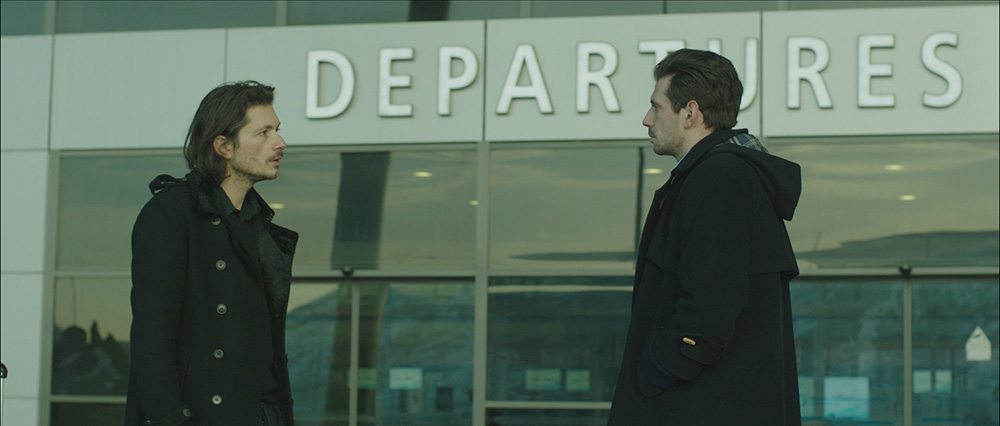
Dir.: Blerta Zeqiri; Cast: Alban Ukaj, Adriana Matoshi, Genc Salihu, Vjosa Abazi; Albania/Kosovo 2017, 97 min.
Blerta Zeqiri’s debut feature is set in Kosovo’s capital Pristina and features – surprisingly – a gay/straight ménage-a-trois. Shot in warm colours by the handheld camera of DoP Sevdije Kastrati, The Marriage always comes up with new twists, keeping us engaged throughout
We first meet Bekim (Ukaj) and his finance Anita (Matoshi) at the border between Kosovo and Serbia, where this Kosovar couple is waiting to identify the bodies Anita’s parents, who were killed in Kosovo War of 1999. This gruesome scene in a makeshift tent is a pitiful sight especially as Anita cannot identify her parents. On the way home in their car to Pristina, were Bekim runs a bar and Anita works in fashion shop, they discuss of Nol (Genc), a musician, who had a successful career in Paris and has now come back to their village. Anita is well aware of the friendship between the two men, but does not know that they have been lovers for a long time. In Bekim’s bar, both men lie to Anita, claiming hat they are depressed because Nol had to give up the love of his life – the implications are clear, that this person is a woman. Later Bekim goes a step further, and tells Anita that Nol is the lover his married sister Zana (Abazi).
What emerges is a story of lies and obfuscation based partly on shame – Islam takes a hard line decrying homosexuality – but this is compounded by a man’s inability to be straight and honest with his wife. Nol too is clearly is confused and is unable, despite his feelings, to be frank with Bekim, refusing to leave the village with and start again in France.
The gay sex is very graphic, on the whole Blerta never shrinks from showing a realistic picture of the male relationship. The atmosphere in the bar scene is testosterone-laden, and when Bekim is approached by a man who wants to use his bar for an LGBT celebration, Bekim refuses and leaves the table angrily. Neither Bekim’s nor Anita’s extended family has an idea about Bekim’s sexual orientation, gaydom is unacceptable for them. Zeqiri never shrinks from showing the duplicity, Bekim’s fear and betrayal are always played out in the crassest possible way. This is a very brave debut, with brilliant ensemble acting and realistic ending. AS
SCREENING DURING EAST END FILM FESTIVAL 2018